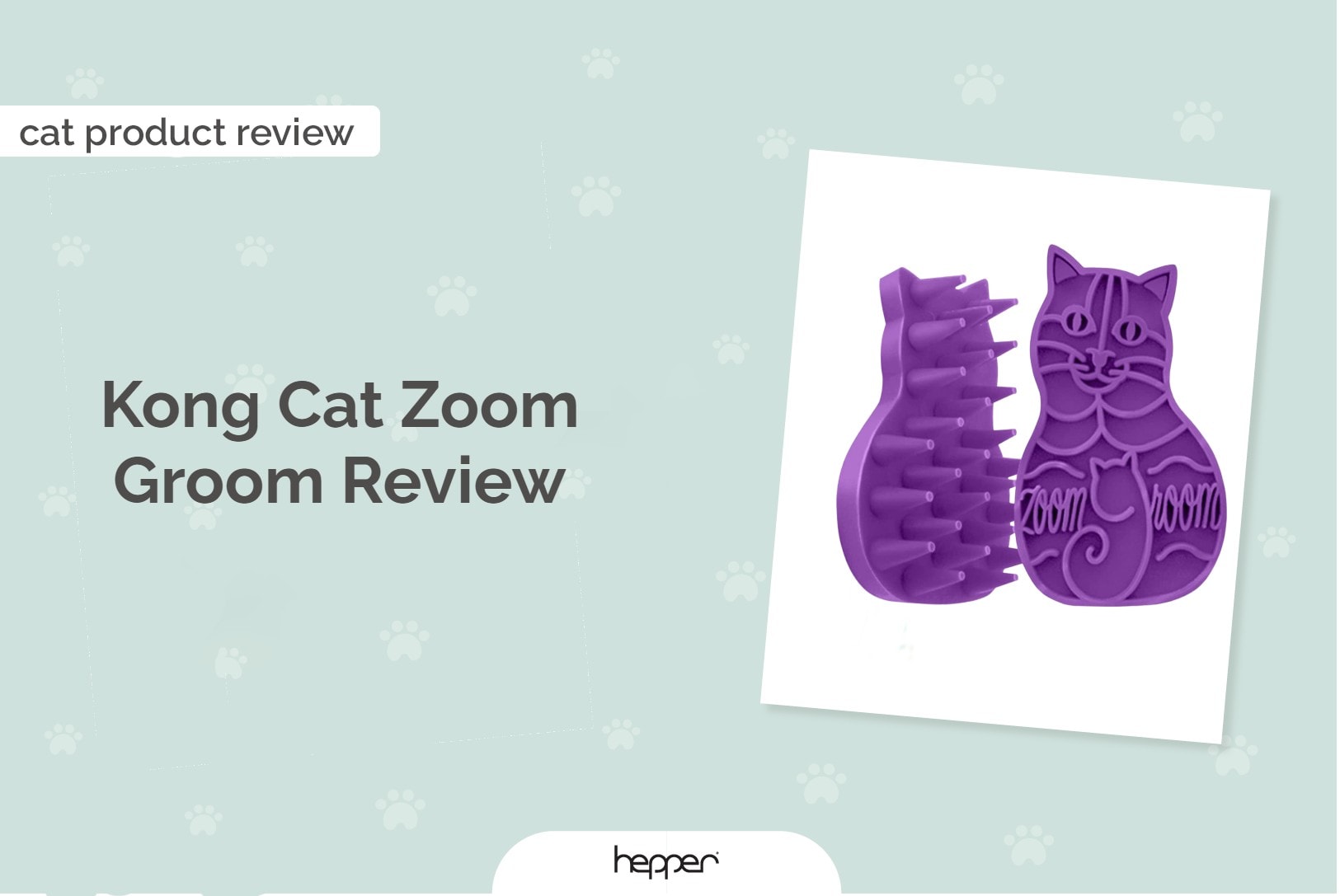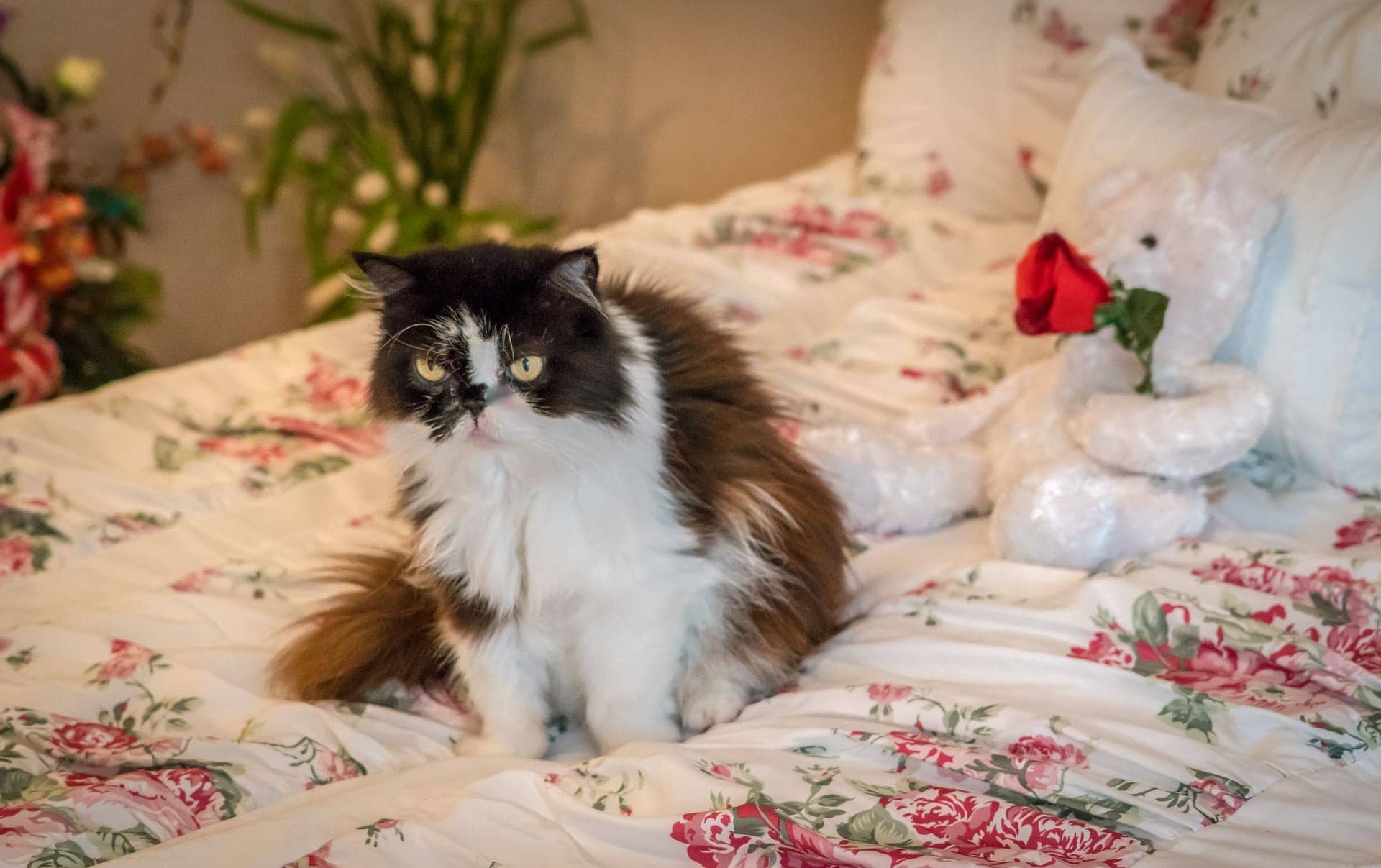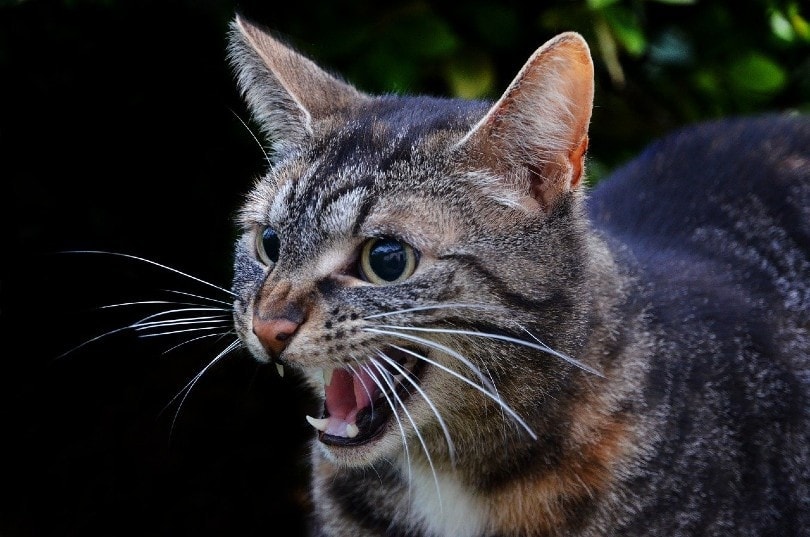My Cat Ate a Poinsettia Leaf, What Should I Do? Vet-Approved Facts & Advice
Updated on
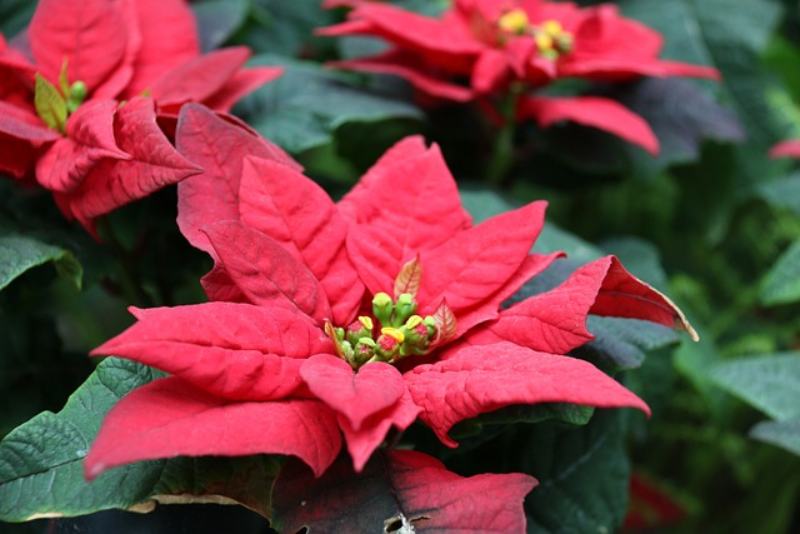
Click to Skip Ahead
There are many different things in your household that could be toxic to your cats including things like plants, different foods, or oils. It is very important to understand the different items you may think are just decorations in your home that could seriously harm your pets. Many things like plants seem harmless, and wouldn’t make you think twice about keeping them around your cat, but there’s nothing worse than making them sick from something you put in their reach.
If your cat has eaten a poinsettia leaf, monitor them for any signs of gastrointestinal distress, but in most cases, a small amount of poinsettia ingestion is not likely to be severely toxic, though it’s best to consult with a veterinarian for advice. Continue reading to learn about what to do if your cat eats a poinsettia leaf and what you can do to keep them well.
What to Do When Your Cat Eats a Poinsettia
There is a specific part of poinsettias that is toxic to cats when they consume or come into contact with it. While the whole plant should be avoided, because cats will let curiosity get the best of them, it is the sap in the plant that causes a bad reaction. Luckily, poinsettias are not highly toxic to cats, so most cats will show mild signs of drooling, vomiting and mild irritations to the skin and/or eyes if the sap comes into contact with them.
If your cat vomits, it may alarm you, but it is usually better that they get rid of any trace of the plant from their stomachs. This type of plant does not usually result in any serious health concerns for cats, so caring for your cat would mean watching them for any advances in illness such as severe and persistent vomiting. You should, however, take them to your local vet if they consume large amounts of the plant because too much of it can increase the chances of a serious reaction.

Are Other Flowers Poisonous for Cats?
It is quite common for plants or flowers to be toxic for cats if they consume them. Cats are very curious creatures and have a natural tendency to chew on things that look like a leafy green to them, which includes common houseplants or flowers.
Some other plants or flowers that are considered poisonous to cats are aloe plants, holly, tulips, lilies, some fruit trees like apple or apricot leaves, certain types of palms, carnations, ivy, jade, and the list goes on. It’s crucial to research a plant before you bring it to a home with cats.
Common Signs of Cat Poisoning from Plants
The signs of poisoning will depend on what your cat has ingested, however there are some signs that you should be on the lookout for. The most common signs your cat has chewed on a toxic plant include behaviors such as vomiting, diarrhea, drooling and skin irritations. But some more toxic plants can even cause more serious signs such as breathing difficulties, kidney damage and changes to the rate and rhythm of the heartbeat.
If your cat’s skin has had contact with the sap from a poinsettia you might also notice your cat’s skin turning red and appearing irritated.Occasionally the eyes may be exposed and become irritated. Your cat might react to these irritations by scratching or rubbing at the affected areas consistently.
In some cases, they may only show signs of an upset stomach or vomiting. You might even notice pieces of the plant they consumed in their vomit.
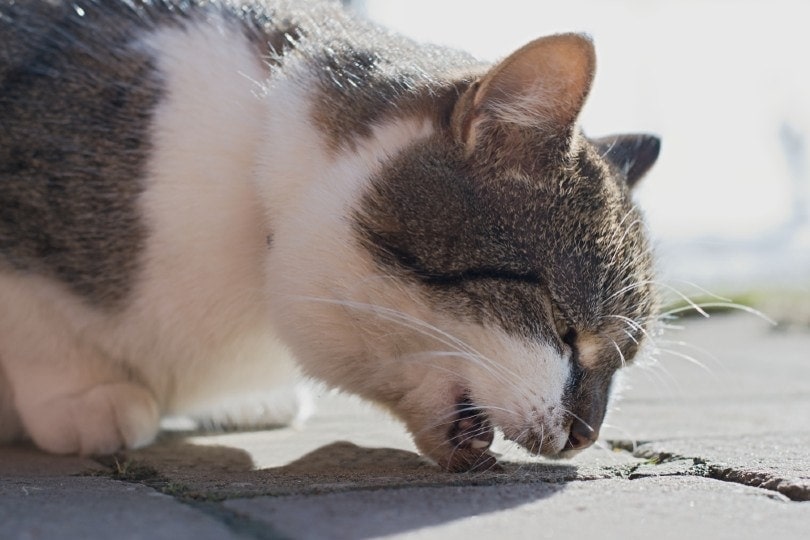
In Summary
If you notice that there are bite marks on your poinsettia and your cat is looking particularly guilty, do not panic immediately. Be sure to observe how much has been chewed on, keep an eye on your cat for anything worse than mild skin irritations or vomiting, and proceed from there. Due to the low level of toxicity this plant produces, your cat would need to eat a large amount of poinsettia leaves to get seriously ill. Of course, always call your vet or the Pet Poison Helpline if you are concerned about how much your cat has ingested or the signs they are showing. Although most cats will be alright in a relatively short space of time, it’s best to keep your poinsettia out of reach of curious kitties in the future!
Featured Image Credit: 5zal_Photography, Pixabay


